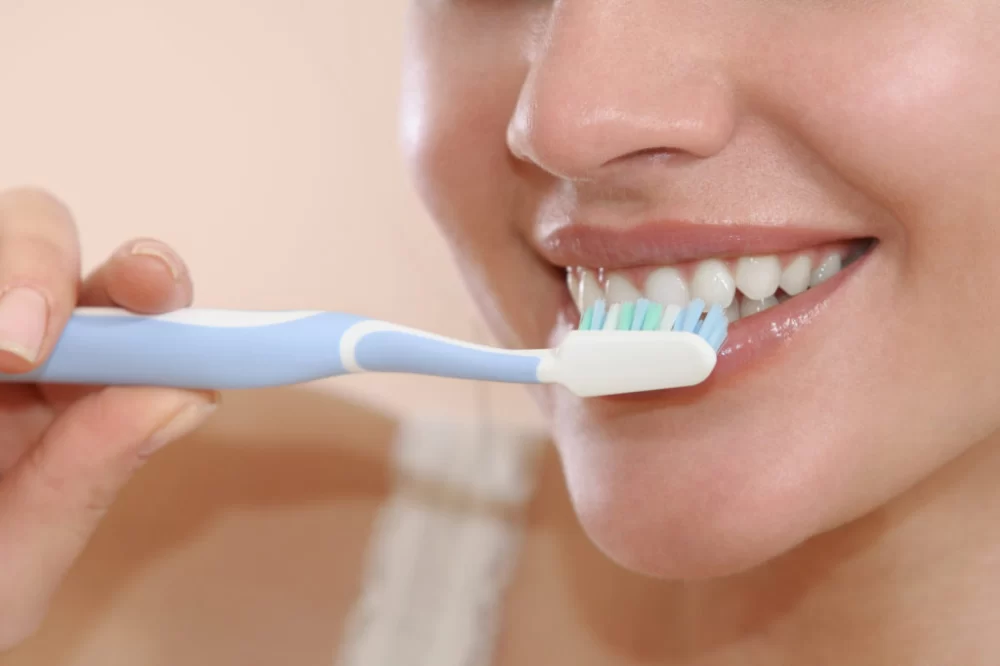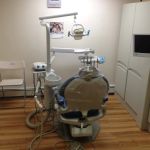
The Importance of Brushing Your Teeth at Night
If you're like me, you know how easy it is to skip brushing your teeth at night when you’re tired or just want to get to bed. But after years of dental visits and learning about the impact of good oral hygiene, I can tell you that brushing your teeth before bed is one of the most important things you can do for your oral health. Nighttime brushing is essential because it helps remove food particles and plaque that accumulate throughout the day, preventing cavities, gum disease, and other dental issues.
Why Nighttime Brushing Matters
The reason brushing your teeth at night is so crucial is simple: when we sleep, our saliva production decreases. Saliva is a natural cleanser for your teeth, helping to neutralize acids and wash away food particles. Without enough saliva, harmful bacteria can grow and thrive in your mouth, leading to plaque buildup, cavities, and bad breath. Brushing your teeth before bed helps remove that plaque, ensuring that your teeth stay clean and healthy overnight.
My Experience with Nighttime Brushing
There was a time when I didn’t give much thought to brushing my teeth before bed. Like many people, I was often too tired or felt like I had already brushed enough during the day. However, after a few trips to the dentist, I began to realize just how much of an impact nighttime brushing had on my oral health. I noticed that after consistently brushing my teeth at night, I had fewer cavities and less buildup on my teeth during checkups. It made me realize how easy it is to take a few extra minutes each night to maintain a healthy smile.
Best Practices for Brushing Your Teeth at Night
Now that you know why brushing at night is essential, let's dive into the best practices to make sure you're doing it correctly. I’ve learned over the years that there are a few simple techniques that can make a world of difference when it comes to oral hygiene before bed.
1. Choose the Right Toothbrush
It may seem like a small detail, but choosing the right toothbrush can make a big difference. I used to use a hard-bristled toothbrush because I thought it would clean better, but my dentist recommended switching to a soft-bristled one. Soft bristles are gentler on your gums and tooth enamel, while still effectively removing plaque and debris. Make sure to replace your toothbrush or toothbrush head every 3 to 4 months to keep it in good condition.
2. Use a Fluoride Toothpaste
Another important factor is the toothpaste you use. I always choose toothpaste that contains fluoride because it helps to strengthen enamel and prevent cavities. Fluoride has been proven to be one of the most effective ingredients in protecting against tooth decay, so make sure your toothpaste includes it. If you’re unsure which brand to use, ask your dentist for recommendations based on your specific needs.
3. Brush for the Right Amount of Time
Brushing your teeth for at least two minutes is essential. I know it can be tempting to rush through it, especially when you’re tired, but brushing for a full two minutes ensures that you clean every surface of your teeth. You can set a timer on your phone, use a toothbrush with a built-in timer, or even play a two-minute song to make sure you’re brushing long enough.
4. Don’t Forget Your Tongue and Gums
When I first started brushing my teeth at night more effectively, I realized I was neglecting my tongue and gums. But brushing your tongue helps remove bacteria that cause bad breath, and brushing your gums can help prevent gum disease. Gently brush your tongue and gums with your toothbrush to keep your mouth fully clean. Some people even use a tongue scraper to get a more thorough clean.
5. Floss Before Brushing
Flossing before brushing is a step that I didn't always prioritize, but it makes a difference. Flossing removes food particles and plaque stuck between your teeth, which your toothbrush can't reach. After flossing, when you brush, you'll be able to remove the plaque and bacteria more effectively, leaving your teeth cleaner and your gums healthier.
6. Rinse with Mouthwash
Using a mouthwash after brushing and flossing is an extra step that can really help with long-term oral health. I use a mouthwash with fluoride to provide additional protection against cavities. Some mouthwashes are also designed to target bacteria that cause gum disease, so it's worth using one that fits your specific needs. Rinse for 30 seconds to a minute to ensure your mouth is completely clean.
7. Avoid Eating or Drinking After Brushing
One of the hardest habits to break is eating or drinking after brushing, but it’s crucial for maintaining your oral health. I used to have a habit of drinking water or eating a late-night snack, but I’ve learned that doing so can introduce new bacteria and food particles into your mouth after you've just cleaned it. Try to avoid eating or drinking anything, except water, after brushing your teeth at night.
My Final Tip: Make It a Routine
Consistency is key when it comes to nighttime brushing. It might feel like a chore at first, but once it becomes part of your routine, it’ll feel just as natural as any other bedtime habit. Set a specific time each night to brush your teeth, and make sure it's something you do before you settle into bed. After all, a few minutes of care each night can keep your teeth healthy for years to come.
Brushing your teeth at night is one of the easiest ways to protect your oral health, prevent cavities, and maintain a beautiful smile. By following these best practices, you’ll be well on your way to healthier teeth and gums, ensuring that your oral hygiene routine is as effective as possible.







 Aspen Dental - Lees Summit, MO4.0 (592 review)
Aspen Dental - Lees Summit, MO4.0 (592 review) Capital Endodontics4.0 (1322 review)
Capital Endodontics4.0 (1322 review) Nanuet Family Dentistry: Dr. Srinivasa5.0 (2 review)
Nanuet Family Dentistry: Dr. Srinivasa5.0 (2 review) Hammond Dental Care4.0 (202 review)
Hammond Dental Care4.0 (202 review) Smith & Hascall Family Dentistry5.0 (284 review)
Smith & Hascall Family Dentistry5.0 (284 review) Village Dentistry4.0 (130 review)
Village Dentistry4.0 (130 review) The Importance of Oral Health Education During Pregnancy for a Healthy Pregnancy
The Importance of Oral Health Education During Pregnancy for a Healthy Pregnancy Best Tips for Brushing Your Teeth Properly for Healthy Gums: Essential Techniques for Oral Health
Best Tips for Brushing Your Teeth Properly for Healthy Gums: Essential Techniques for Oral Health Why Skipping Dental Checkups Can Lead to Bigger Oral Health Problems
Why Skipping Dental Checkups Can Lead to Bigger Oral Health Problems Advantages of Porcelain Dental Restorations
Advantages of Porcelain Dental Restorations How Can Diabetes Cause Tooth and Gum Problems? Preventing and Managing Oral Health Issues
How Can Diabetes Cause Tooth and Gum Problems? Preventing and Managing Oral Health Issues Healthy Habits for Promoting Good Oral Health and Hygiene: Tips for a Healthy Smile
Healthy Habits for Promoting Good Oral Health and Hygiene: Tips for a Healthy Smile